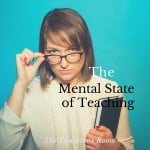The life of nine-and ten-year-olds can be a complicated one in their child development. Let’s look at development in our five key areas. You can read other age groups here.
Cognitive development:
These are your ‘fact’ kids and your ‘I’ll-try-anything-to-prove-you-wrong’ kids. They are always up for a challenge and are on the lookout for adults to make mistakes. Kids at these ages are really trying to separate themselves as individuals but still want to be recognized by adults for ‘standing out’ among the crowd. They still internalize praise, even if externally, they may not respond to it. They want to be ‘right’ all the time, are very competitive, and will rationalize in any way to not have to admit they may have made a mistake.
Memory is very good at this age, especially if the concepts are linked to applicable information. These kids also enjoy experimental learning. They may venture from being totally visual to testing the waters of auditory and kinesthetic learning styles. Nine-and ten-year-olds enjoy learning for the most part but may lean more toward enjoying one subject than another.
Social development:
During this age group, boys prefer to play and interact with boys, while girls prefer to be with girls, although girls can become quite catty and clique-ish, establishing a pecking order which will continually shift between girls for the next few years. Boys enjoy pushing boundaries within their social circles and among authorities in order to give the appearance of being the top male.
Kids at these ages are also starting to enter pre-puberty, which may cause parents’ heads to spin. Moods may begin to change from day to day; boys may become more aggressive and sullen, and girls may become even more emotional than normal. Rolling eyes, heavy sighing, and bad attitudes abound in both sexes. Boys and girls alike seem to be riding an emotional roller coaster. Surges of hormones are beginning to kick in and are inconsistent and uncontrollable. Toward the end of the tenth year, both girls and boys may begin to admit ‘liking’ someone of the opposite sex but will only admit it to their inner, same-sex social circle. They may also behave horribly toward the person they are attracted to.
Both boys and girls still enjoy collecting objects. They enjoy seeing their collections grow, and these collections usually only have meaning to the collector. Girls tend to be drawn to collecting small items, while boys seem to enjoy collecting items that others may find undesirable, like bugs, knives, or rocks.
Most have difficulty letting go of ‘playing’ and are torn between wanting to still play with toys and moving into pre-teen activities.
Speech and Language Development:
Although most speech delays have been assessed prior to these ages, some kids may continue with speech therapy but may not be very cooperative about it in this stage of child development.
These are also the ages when kids really start experimenting with ‘bad’ language. Prior to these years, for most kids, foul language was not used in context. By nine- and ten years of age, kids are beginning to toss in a few swear words here and there in the correct context to impress friends. Some kids may only use this type of language consistently around their friends for fear of their adults not being pleased with them. Still, others like the shock value the use of swear words brings from their adults.
Gross motor development:
For the most part, gross motor skills have been finely honed, although nine-and ten-year-old boys enjoy wrestling and rough-housing quite a bit. Group activities that are competitive and rough and tumble are favorites, while girls prefer to separate themselves from the boys but still enjoy being active.
Fine motor development:
Kids at these ages in child development have appropriate fine motor skills but have a tendency to want to rush through everything for the sake of ‘winning’. Everything is a competition. Handwriting can be atrocious, and papers may have to be redone several times in order to get the desired neatness.
All in all, nine- and ten-year-olds need some extra TLC and understanding from their adults. They can be a handful but aren’t intentionally being difficult. Continue being patient with them, praising them, and encouraging them.







